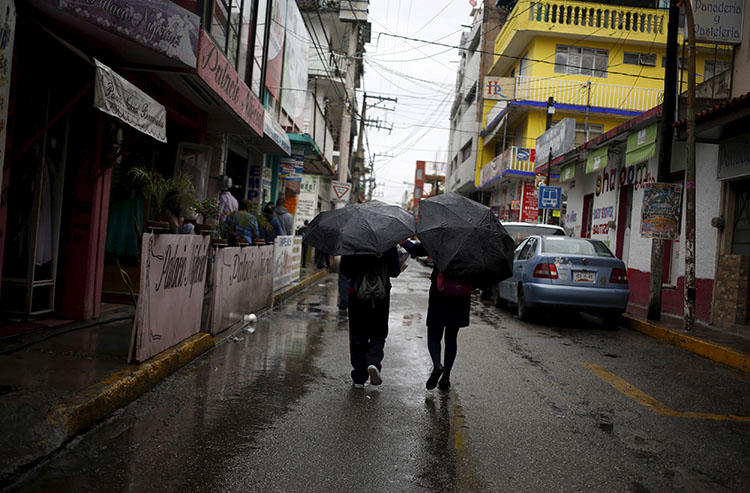The office of Mexico’s Federal Attorney General (PGR) on July 11, 2018, sent an email to the news website Quadratin summoning one of its reporters, Jorge Octavio Vargas Sandoval, for an interview at its regional office in Chilpancingo on July 16 in regards to an article he wrote, according to the reporter and the publication’s editorial director, Ricardo Castillo Díaz.
According to the email, which was seen by CPJ, Vargas Sandoval’s article was about a blockade along a federal highway in Guerrero state that was organized by local activists. It was published in Quadratin on December 18, 2017.
The email also stated that Quadratin could be fined should the reporter refuse to attend the interview.
Vargas Sandoval and Castillo Díaz met with PGR representatives on July 16 and learned upon arrival that Vargas Sandoval’s interview would also serve as witness testimony, should the federal authorities pursue charges against the activists, according to the reporter and editor.
“They began interrogating me about the events of that day [of the blockade],” Vargas Santiago told CPJ in a July 31 telephone conversation. “They wanted me to give details about the people at the blockade. I felt cornered.” The reporter told CPJ that he refused to provide the authorities with information that was not in his article.
In the article, Vargas Santiago reported that approximately 100 people from the region surrounding the town of Igualapa blocked the federal highway connecting the cities of Acapulco and Pinotepa Nacional. The activists, mostly indigenous Mixtecos, demanded that authorities extend the road network to connect La Montaña and the Costa Chica, two underdeveloped, rural regions with limited infrastructure, according to the article. The regions’ predominantly indigenous population regularly protests perceived social and economic discrimination, often leading to clashes with authorities, according to news reports.
Mexican law prohibits blocking federal roads.
Both Vargas Santiago and Castillo Díaz told CPJ that they felt highly uncomfortable with the reporter being summoned by the federal authorities and having to provide witness testimony. They said that these actions could pose a safety threat to Vargas and other Quadratin reporters in the future.
“The region where Jorge Octavio works is a poor, marginalized one. There is a lot of violence and there is often social unrest,” Castillo Díaz told CPJ on July 31. “[O]ur principal fear is that the activists in the region, the general population, would see us as opposing them or being in the side of the authorities.”
Vargas Santiago, who is based in Ometepec, a town in Guerrero’s Costa Chica region, told CPJ that “it took [him] a long time to win people’s trust.”
Guerrero is one of Mexico’s poorest and most violent states, according to news reports. A series of turf wars between organized crime groups has, in recent years, cost thousands of lives, according to the reports. Social unrest is also common in the state, especially in regions such as La Montaña and the Costa Chica.
Sara Mendiola, a legal scholar and the director of Propuesta Cívica, a Mexico City-based group that documents press freedom violations and provides legal assistance to journalists and human rights activists, told CPJ that, although the PGR can summon reporters based on their articles, such actions may have serious consequences for journalists.
“Reporters and media give voice to social struggles, and protesters, activists and social groups can end up considering journalists as working with the authorities and against them,” she said.
The PGR did not reply to CPJ’s calls requesting comment, which were placed between July 30 and August 1.
Vargas Santiago, 44, has covered general news for Quadratin for two years and he is also a long-time contributor to La Crónica Vespertina de Chilpancingo, a regional newspaper, and several local television and radio broadcasters, the journalist told CPJ.
Quadratin operates in several central and southern states in Mexico, according to Castillo Díaz.
